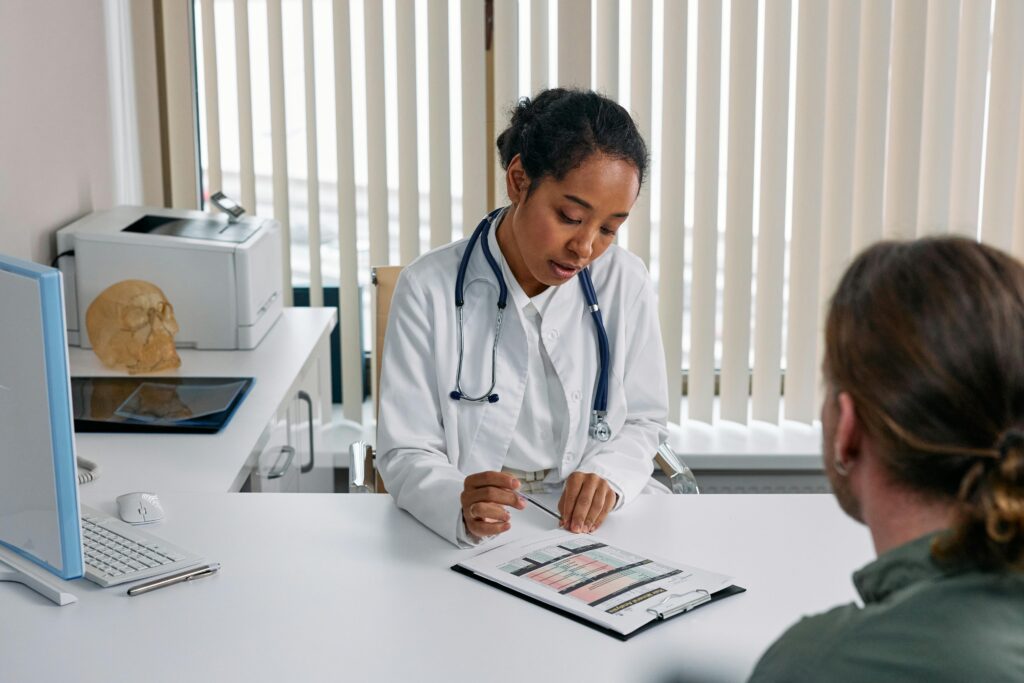Dear friends,
It’s my pleasure to hand over this month’s newsletter greeting to my esteemed colleague, HealthBegins Senior Fellow, Ellen Lawton. Enjoy!
Best,

Rishi Manchanda, MD, MPH.
Last month, hundreds of leaders and practitioners across the legal, health, and social care sectors gathered online to learn about some exciting progress in the medical-legal partnership (MLP) movement. This movement anchors legal aid expertise upstream in the healthcare setting to address complex social needs, like housing and public benefits, that have a profound impact on health.
Kaiser Permanente presented powerful outcomes from the first two years of its landmark Health, Housing, and Justice: Medical-Legal Partnership Initiative. (The National Center for Medical-Legal Partnership and HealthBegins lead training and technical assistance for this unprecedented multi-site initiative.) Together with our partners, we’re developing a detailed blog, coming soon, that will describe the range of impacts that early access to legal aid services can have for people, communities, and healthcare organizations. Spoiler alert: MLP works, and Kaiser Permanente has the data to prove it.
This means that the future of health equity involves medical-legal partnership.
As a step toward that future, I want to introduce you today to a key leader in the legal aid community, an organization whose leadership and embrace of MLP is critical as the movement continues to grow. Say hello to the Legal Services Corporation (LSC), the single largest funder of civil legal aid for low-income Americans. Established by Congress in 1974, LSC operates as an independent nonprofit that promotes equal access to justice and distributes grants to 131 independent nonprofit legal aid programs with more than 800 offices. LSC is like the Health Resources and Services Administration, but for legal aid.
LSC grantees handle the basic civil legal needs of the poor, addressing matters involving safety, subsistence, and family stability. In other words, legal aid lawyers are part of the equity team, promoting equitable access, fairness, and health. Lawyers often talk justice, but mean equity. In health care, we haven’t historically thought of public-interest lawyers as healthcare partners, but it’s time that we do.
The message to remember here is that we—health, public health, public interest law—are all in it together and need to support each other in a variety of ways. That’s why HealthBegins submitted a public comment last month supporting increased federal funding for the LSC. In your community, you can show your support by finding your local, regional, or state-wide legal aid program and uplifting their work.
Stay tuned for resources to come on this channel that will help you do that. Because equity, justice, and health are inseparable, and the pursuit of one strengthens the pursuit of all.
Best,
Ellen Lawton
Featured content
HealthBegins Brief: Addressing Climate Health Inequities With The Community Health Needs Assessment
This HealthBegins Policy and Practice Brief invites every healthcare organization to immediately begin addressing the impact of climate change on health at the community level and with community participation.
Immigration Enforcement in Healthcare Settings: How to Prepare and Respond
Many of our healthcare partners are asking how they should prepare for potential ICE encounters on their premises and respond in the interim to concerns among patients and staff. These questions, answers, and resources provide some guidance.
To Build Effective Social-Care Investments, Change the Narrative About Them
The lesson for everyone working at the intersection of health and social care is this: to build sustainable partnerships that effectively address health-related social needs, we need to examine and challenge our underlying perceptions of value.



